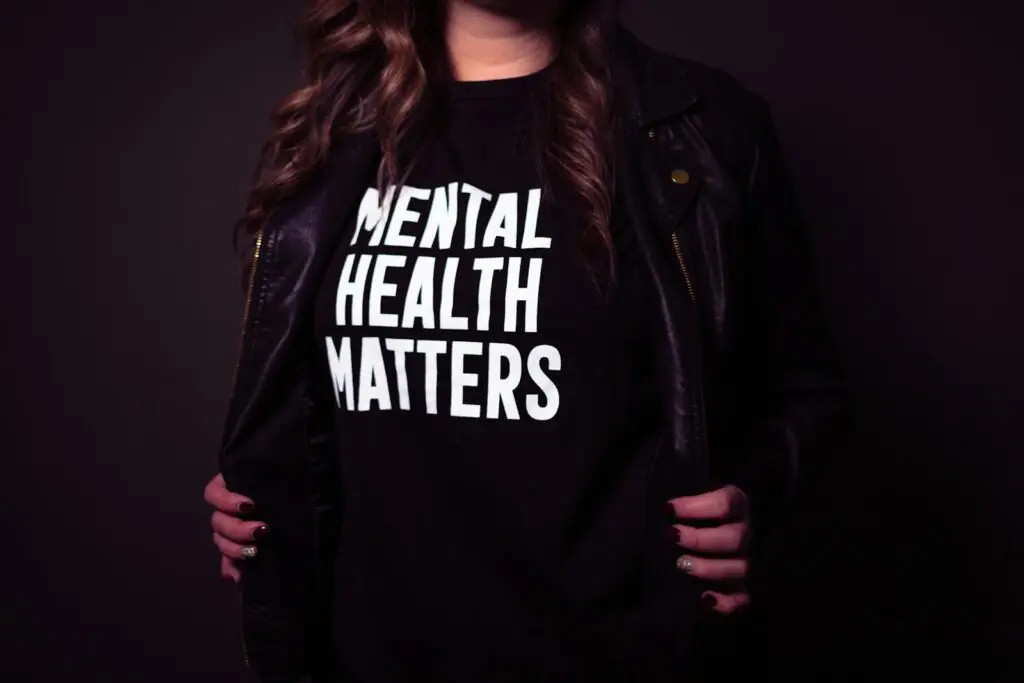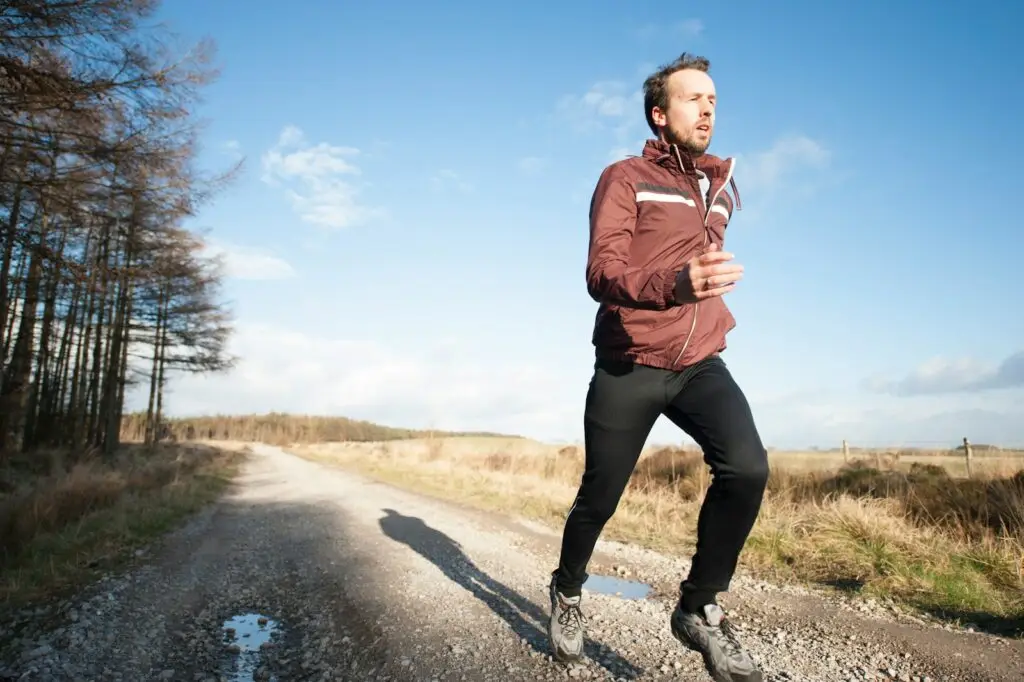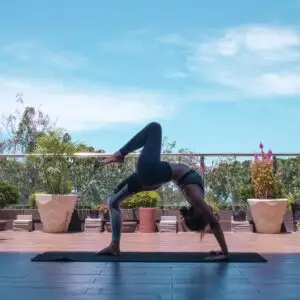
Do you know that wonderful feeling you experience after wrapping up a workout? You’re sweaty, maybe a little out of breath, but this undeniable rush of energy and happiness that follows. Well, it turns out that’s not just in your head. The benefits of regular exercise for mental health in San Francisco. do wonders for both your body and mind. If you live in a lively place like San Francisco, life can sometimes feel a whirlwind, making it even more important to squeeze in some regular physical activity. So, let’s dive into how getting moving can transform your life.
1. What Are the 5 Key Mental Health Benefits of Working Out in San Francisco?
In exercise, the perks are endless. Here are five standout benefits that highlight why you should make it a priority in your life:
1.1 Boosts Mood and Reduces Anxiety
Exercise releases endorphins, which lift your spirits. Physical activity combats anxiety and promotes a positive outlook.
Ever notice how a good workout can lift your spirits? It’s not just you! Physical activity releases endorphins––those lovely little hormones that make you feel happy. I remember days when I felt overwhelmed or anxious, and then I’d hit the gym. the weight on my shoulders felt lighter. Research backs this up; exercise can combat anxiety and promote a more positive outlook.
1.2 Enhance Cognitive Function
Increased blood flow during exercise keeps your mind sharp, improving memory and decision-making skills.
Your brain loves exercise just as much as your body does. Increasing blood flow during physical activity keeps your heart healthy and helps your mind stay sharp. Think about it: Have you ever had a “lightbulb moment” during a run? It’s like your brain is saying, “Thanks for the cardio!” Studies show regular exercise can improve your memory and decision-making skills, helping you feel more focused and productive.
1.3 Supports Physical Health
Exercise maintains a healthy weight, improves cardiovascular health, and reduces the risk of chronic diseases.
Of course, let’s not forget the physical benefits. Exercise keeps your body in check––helping you maintain a healthy weight, improving your cardiovascular health, and reducing the risk of chronic diseases. It’s the ultimate win-win situation: you feel inside and out!
1.4 Improves Sleep Quality
Regular activity helps you fall asleep faster and enhances the quality of your slumber, leading to a more refreshed start.
Struggling with sleep? Exercise can help! Regular physical activity can make it easier to fall asleep and improve the quality of your slumber. I’ve found that on days when I work out, I crash into bed and enjoy a deep, restful sleep. Trust me, waking up refreshed makes all the difference in tackling the day ahead.
1.5 Builds Resilience
Pushing through workouts teaches you resilience, which helps in overcoming obstacles in life.
There’s something about pushing through a tough workout that teaches you resilience. It’s not just about the physical challenges; it’s about proving to yourself that you can overcome obstacles. This newfound strength can spill over into other aspects of your life, helping you handle stressors more effectively.
2. How Does the Lack of Physical Activity Affect Your Mental Health in San Francisco?
Now, let’s flip the scripts. What happens when you don’t exercise? It’s not pretty. Here’s how a sedentary lifestyle can negatively impact your mental well-being:
2.1 Increased Anxiety and Depression
Inactivity contributes to feelings of lethargy and sadness, increasing anxiety disorders. Feeling Down? A lack of activity can contribute to feelings of lethargy and sadness. I’ve been there––those days when I binge-watch my favorite shows instead of hitting the gym. Without the endorphin boost, I feel more anxious and overwhelmed. Studies say that those who are inactive are more likely to experience anxiety disorders, so it’s vital to get moving.
2.2 Cognitive Decline
Lack of physical activity can lead to cognitive decline, making it harder to remember things.
If you’re not engaging in physical activity, your brain may not function at its best. Inactivity can lead to cognitive decline, making it harder to remember things or stay focused. That’s not how any of us want to feel, right?
2.3 Poor Sleep Quality
Not exercising disrupts sleep patterns, leading to insomnia and poor sleep quality.
Not exercising can mess with your sleep patterns. When I don’t get my workout in, I find myself tossing and turning, which only adds to my stress. Research shows that inactivity is linked to insomnia and poor sleep quality––something we all want to avoid.
3. How Does Exercise Reduce Stress in San Francisco?
Let’s talk about stress. Life can throw curveballs, but exercise can help manage stress in the following ways:
3.1 Releases Endorphins
Physical activity releases natural stress relievers that can uplift your mood.
As I mentioned earlier, exercise releases those feel-good endorphins. Which are your body’s natural stress relievers? When I’m feeling particularly stressed, a good run or even a brisk walk can work wonders for my mood.
3.2 Provides a Healthy Distraction
Physical activities like yoga or hiking offer a break from life pressures.
Exercise is a fantastic way to take a break from life’s pressures. Whether it’s a yoga class or a group hike in Marin County, getting moving helps you step back and gain perspective.
3.3 Improves Resilience
Regular workouts build mental strength. Allowing you to tackle stressors more effectively.
Regularly pushing through workouts builds not just physical strength, but also mental resilience. Each workout challenges you to step outside of your comfort zone, helping you to tackle stressors in your life with a fresh mindset.
4. How Does Working Out Keep Your Brain Healthy in San Francisco?
Your brain needs love too, and exercise plays a crucial role in maintaining brain health:
4.1 Increases Blood Flow to the Brain
Physical activity boosts blood circulation, delivering oxygen and nutrients essential for cognitive function.
Exercise boosts blood circulation, delivering much-needed oxygen and nutrients for your brain to keep healthy. This is essential for optimal cognitive function. Ever felt a big fog? A quick workout can clear that right up!
4.2 Promotes Neurogenesis
Regular exercise encourages the growth of new brain cells, vital for learning and memory.
Regular physical activity encourages neurogenesis––essentially, the growth of new brain cells. This process is vital for learning and memory. Making exercise is a smart choice for maintaining brain health.
4.3 Enhances Mood Regulation
Exercise improves your brain’s ability to respond to stress, promoting emotional stability.
Exercise helps to regulate mood by improving your brain’s ability to respond to stress. The positive changes in your brain chemistry can lead to better emotional stability. You’ll find it easier to manage daily ups and downs.
5. What Are the Physical and Mental Benefits of Strength Training Workouts in San Francisco?
Strength training has unique benefits:
5.1 Increase Confidence
Lifting weights boosts confidence as you achieve your fitness goals.
There’s nothing quite like the feeling of lifting heavier weights. It’s empowering! As you build strength, you’re not just shaping your body; you’re boosting your confidence. I can still remember my first time deadlifting––I felt like a superhero!
5.2 Reduces symptoms of Anxiety and Depression
Resistance training alleviates anxiety and depression, acting as a form of mental meditation.
Research shows that resistance training can significantly alleviate anxiety and depression symptoms. The focus required during lifting can provide a short meditation that helps you clear your mind and find peace.
5.3 Enhances Brain Health
Like cardio, strength training increases blood flow to the brain, promoting cognitive health.
Just like cardio, strength training increases blood flow to the brain. This promotes cognitive health. Making it a great way to combat age-related cognitive decline.
6. How Does Running Help Your Mental Health in San Francisco?
Ah, running is a simple yet effective form of exercise and can be incredibly beneficial for your mental health:
6.1 Releases Feel-Good Chemicals
When you lace up your shoes and hit the pavement, your body kicks into gear, releasing those lovely endorphins. This “runner’s high” is something you’ve got to experience to believe.
6.2 Offers Time for Reflection
Running releases endorphins, creating a euphoric “runner’s high”
Running gives you the chance to think, or something not to think at all. I’ve solved many of my life’s minor puzzles while on a run––something about the rhythm really sparks creativity.
6.3 Social Interaction
Joining a running club fosters community and offers social support.
Whether you’re joining the running club or participating in local races, running is a great way to connect with others. It fosters community and can be a great support system for your mental health.
7. What Type of Exercise is Best for Mental Health in San Francisco?
Different types of exercise excel in boosting mental health:
7.1 Aerobic Exercise

Activities like jogging and cycling elevate mood and increase endorphins.
Activities like jogging, cycling or dancing are fantastic for mood enhancement. They get your heart rate up and those endorphins flowing.
7.2 Yoga and Mindfulness
Combining movement with mindfulness, yoga helps with stress relief.
Yoga combines movement with mindfulness, making it a powerful tool for stress relief. It’s all about finding that balance, both physically and mentally.
7.3 Strength Training

Lifting weights builds confidence and alleviates anxiety.
Don’t underestimate the power of lifting weights. It can build confidence and alleviate anxiety, making it a solid choice for mental health.
7.4 Outdoor Activities

Outdoor activities like hiking connect you with nature, boosting your mood.
Living in a place like San Francisco, outdoor activities like hiking the Presidio or kayaking in the Bay not only get your body moving but also connect with nature, which can boost your mood even more.
8. Wrap-up
Living in a vibrant city like San Francisco, it’s important to make time for your health. The mental health benefits of working out in San Francisco are too significant to ignore. Take advantage of the city’s gyms, parks, and fitness classes. Make a commitment today to incorporate regular exercise into your life. Your future self will thank you for the improved mood, reduced stress, and overall better health. Get moving and feel the difference!
FAQs:
1. How often should I work out to feel better mentally?
Aim for at least 150 minutes of moderate aerobic exercise each week, plus two days of strength training. Consistency is key, so find what you enjoy and stick with it!
2. Can working out really help with anxiety and depression?
Absolutely! Regular exercise can reduce symptoms of anxiety and depression, acting as a powerful natural remedy alongside other treatments.
3. What’s the best type of exercise for boosting mental health?
Aerobic exercise, strength training, yoga, and outdoor activities are all excellent options. The best exercise is the one you enjoy the most—so get moving and have fun!

